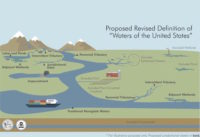A Federal Transit Administration proposal to change its standards for evaluating new projects has sparked an outcry from transit agencies and lawmakers on Capitol Hill. They contend FTA didn’t follow guidelines Congress set in 2005’s SAFETEA-LU law and also added provisions not called for by legislators. The Senate has voted to block FTA from carrying out the proposal, at least for 2008.
At issue is a proposed rule FTA published on Aug. 3 detailing changes it wants to make in rating “new starts.” FTA Administrator James S. Simpson defends the proposal, telling a House subcommittee on Sept. 26 that it “provides a good basis on which to make continued improvements to the management of this important program.”
But the American Public Transportation Association opposes FTA’s plan as now written. Paul Dean, APTA director of government relations, says, “It more addresses [Bush] administration priorities than it does what Congress laid out in making the changes to those programs in the [SAFETEA-LU] legislation.”
| NEW STARTS | |
| Full-funding grant agreements recently executed | |
| I-205/Mall light rail (June 19) | Portland, Ore |
| Norfolk light rail (Oct.1) | Norfolk, Va. |
| Pending full-funding agreement | |
| West Corridor light rail | Denver |
| Proposed full-funding agreements | |
| Second Ave. Subway phase 1 | New York City |
| University Link light rail extension | Seattle |
| Other new start projects | |
| New Britain-Hartford busway | Hartford, Conn. |
| Northstar Corridor rail | Minneapolis-Big Lake, Minn. |
| North Corridor bus rapid transit | Houston |
| Southeast Corridor bus rapid transit | Houston |
| Dulles Corridor Metrorail extension | northern Va. |
Sources: Federal Transit Administration, Government Accountability Office | |
Jeff Boothe, chair of the New Starts Working Group, a transit agency-industry coalition, says Congress wanted projects’ economic development benefits to be weighed on par with cost efficiency. But Dean says that in FTA’s plan cost-effectiveness would count for 50% of a project’s score and land use and economic development only 20%, combined.
SAFETEA-LU set up a “small starts” program for projects costing less than $250 million, with federal funding below $75 million. FTA’s plan includes small starts, but adds a “very small starts” category for projects costing less than $50 million and $3 million per mile. Boothe says that “excludes all forms of rail transit.” He says the most glaring provision is FTA’s defining fixed guideways to include parts of high-occupancy toll lanes, on which transit vehicles could run. If Congress wanted to make such a change, “They could have done so,” he says.
FTA’s proposal has run into flak in Congress. A 2008 transportation spending bill the Senate passed on Sept. 12 bars FTA from using federal funds to carry out the rule. House Transportation and Infrastructure Committee Chairman James Oberstar (D-Minn.) terms FTA’s plan “seriously flawed” and highways and transit subcommittee Chairman Peter DeFazio (D-Ore.) calls it “potentially a failed attempt at a rulemaking.”
Comments on the proposal are due by Nov. 1. Simpson says he doesn’t expect a final rule to be issued until 2008.

